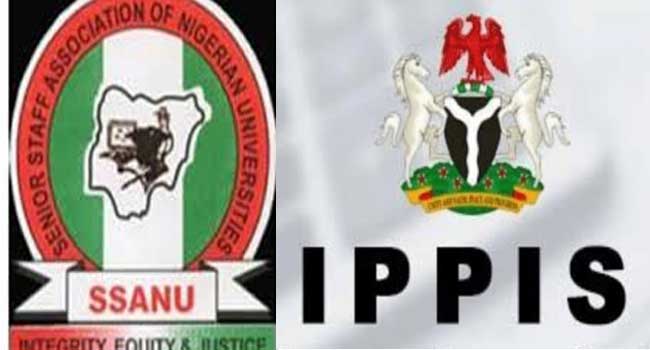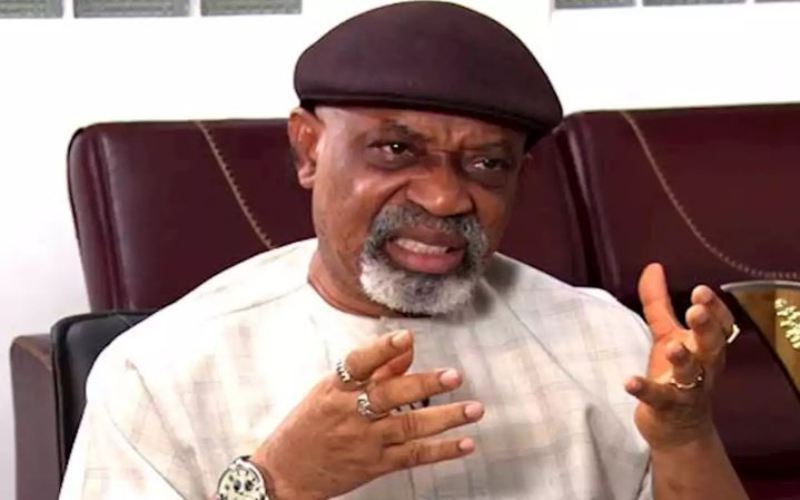The National Information Technology Development Agency (NITDA) has said the Universities Transparency Accountability Solution (UTAS) presented by the Academic Staff Union of Universities (ASUU) for the payment of lecturers in the country failed its integrity test.
TheNewsGuru.com (TNG) reports Director-General of NITDA, Mr Kashifu Inuwa made this known when he fielded questions from State House correspondents at the end of a Federal Executive Council (FEC) meeting, presided over by Vice-President Yemi Osinbajo at the Council Chambers, Presidential Villa, Abuja, on Wednesday.
Recall that ASUU had in December 2021 celebrated the supposed endorsement and approval of UTAS by NITDA after its president, Emmanuel Osodeke revealed the payment platform was approved by the federal government agency.
“NEC is pleased that the end-user evaluation report overwhelmingly endorses UTAS for immediate deployment by the government for Nigerian universities. On our part, ASUU is fully prepared to address all the technical observations made by NITDA in order to make this happen,” Osodeke said at the time.
However, Inuwa has said the NITDA never endorsed UTAS, stressing that the platform failed integrity test, ad that the federal government is still waiting for ASUU to upgrade and return the platform after addressing technical issues observed.
TNG reports ASUU has embarked on one a month warning strike on February 14 to press home their demands involving about N1.3 trillion. The union also wants the federal government to adopt the UTAS payment platform to replace the Integrated Personnel and Payment Information System (IPPIS), which Osodeke had described as evil.
Reacting to the contentious issues that led to the ongoing ASUU strike, the Minister of Communications and Digital Economy, Prof. Isa Pantami, said when he received a letter from the Minister of Labour and Employment, Dr Chris Ngige, requesting a review of the submission and the technical ability of the software of the system, he forwarded the request to NITDA
He said: “NITDA conducted their own analysis, their own testing and sent same back to me, and I drafted a cover letter I forwarded to the Minister of Labour and Employment, and I copied the two Ministers of Education, Minister of Finance, Budget and National Planning, and also office of the Accountant General of the Federation and even NUC (National University Commission).”
Pantami, however, directed the director-general of NITDA, who sat beside him, to give the situation report on the matter.
Inuwa said: “When we received the request to review UTAS, you know, building a complex system like UTAS that involves employees’ personal data, and also payment system, we have to subject it to best practice tests before approving.
“Normally, when we are reviewing that kind of system, we perform three tests.
“Firstly, because when you’re building a system, it’s not just about the technology, you need to consider the people that will use this system and the process.
“If you don’t align people, process and technology, you will never get results. No matter how good the technology is, if the people don’t understand how to use it, they won’t use it. And if the process is different from the way the people work, also, they won’t use it.
“So that is a process of building technology.
“You need to get the business requirement. What do you want to achieve? So it’s not the technology that will come first, it is the business requirement, what do you want to achieve, then you need to identify the capabilities you need to achieve, that is your business objective.
“Part of the capability is the technology you need to bring in and the people that will operate the technology before you start thinking of the technology, because technology is always a tool that will help you to achieve an objective or to do your work. If you bring the tool before knowing what to do with it, it will be useless.
“So, when they came, we said okay, fine, we will do a user acceptance test. ASUU you’ve built this system, but you are not the one that will use the system. There are people in bursary, and in finance that will use this system.
“So we need to do users’ acceptance test with them, let them come, show them the system, let them see if it can help them to do the work there.
“Secondly, we said we’ll do a vulnerability test to test the security integrity of the system. Because if there is vulnerability, people can hack it, can change it, and it involves financial transactions. Adding zero means a lot. So we say we need to do that.
“And also we need to do a stress test. You can build a system on your laptop or on a small computer, use it but when you put so much data it will crash, we need to do the stress test to make sure that system can do.
“This is on the system. Then also you need to have a data centre where you need to put that system because just having a system without the data centre it will not operate also.
“So, we did all these three tests with them. And the system couldn’t pass. We wrote the reports and submitted it back to the Minister, which he forwarded to all relevant institutions, including ASUU.
“As we speak now, ASUU is working, trying to fix all the issues we highlighted with the system and we will review it again, but that is just one half of the story.’’
According to him, ASUU is yet to inform the federal government where the data centre of the system will be installed.
“The second half of the story also, we need to find where to put that system like IPPIS; we have a data centre built for it. ASUU where are we going to put it?
“That means we need to have the data centre and also we need to check the data centre to make sure it meets the minimum requirement, because if you put people’s information and the system crashes, how can you pay them salary?
“You need to build redundancy. There are a lot of things to do. So, but as we speak, they’re trying to fix all the issues we highlighted with the system. Then when we finish that, we need to look at the second half of the story, getting where to install it.”
Recall that the Minister of Labour and Employment, Dr Chris Ngige had on March 1 briefed President Muhammadu Buhari on the progress report over the on-going negotiation between federal government and ASUU.
Ngige, who spoke to newsmen at the end of the meeting with the president, said the federal government had so far paid over N92 billion as earned allowances and revitalisation fee to federal owned universities across the country.
He said this was part of the implementation of the 2020 December agreement reached with the ASUU.




